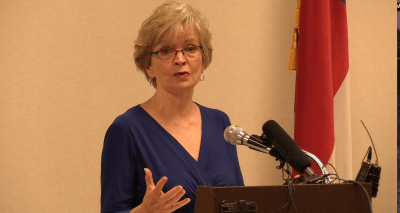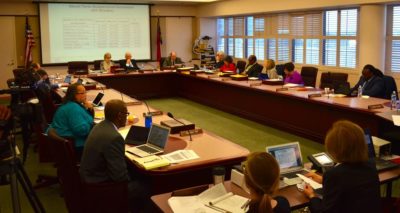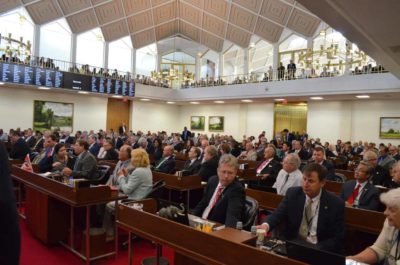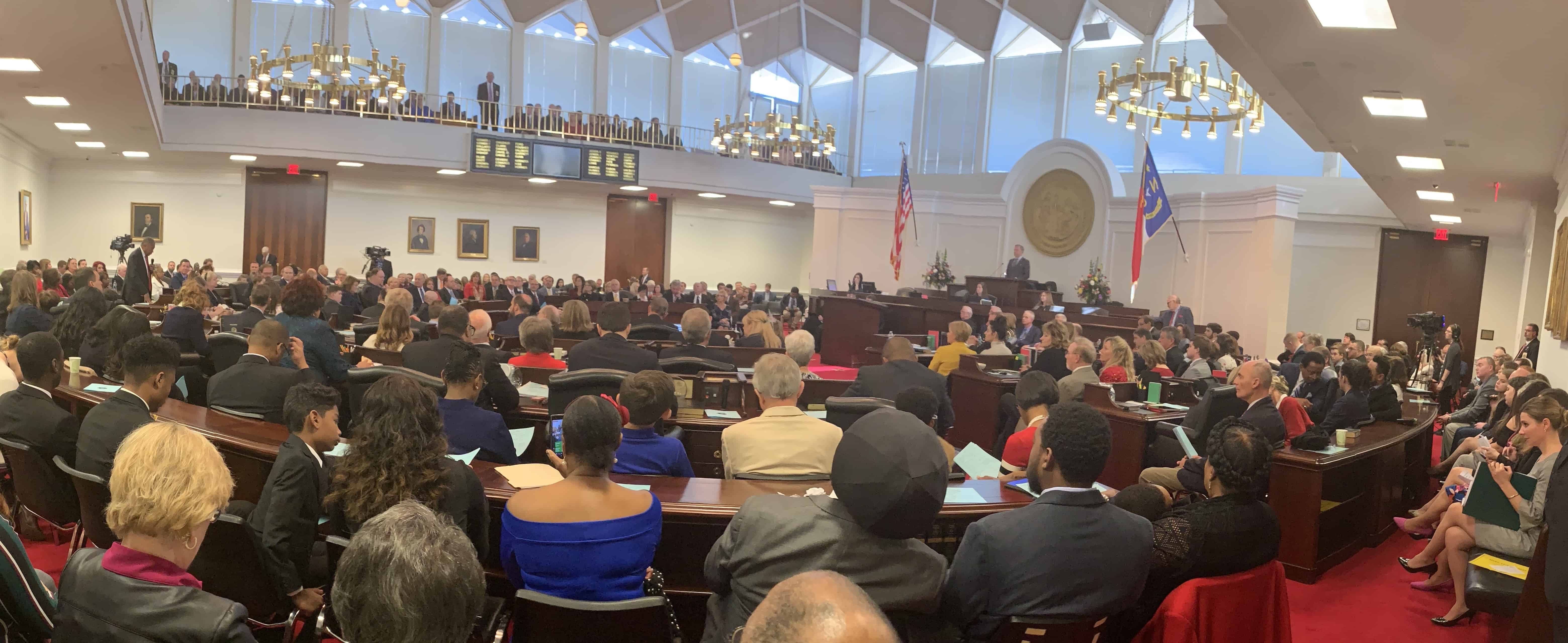The House and Senate gave an initial ‘yes’ vote to the state’s two-year budget today. The House voted 66-50 and the Senate voted 33-15. The House and Senate still need to vote a final time tomorrow.
“I feel like we’re moving in the right direction with this compromise budget,” said Rep. Jeffrey Elmore, R-Wilkes, a co-chair of the House education appropriations committee. He added that he was glad the House was able to work with the Senate and get them to understand the importance of emphasizing veteran teachers during this biennium.
Under the plan, teachers will get an average 3.9% pay raise over the biennium, but all new raises go to teachers with 16 years of experience or more. Teachers from 0-15 years of experience will only be getting their normal step increases. Teachers from 16-20 years of experience will be getting a $500 raise in both years of the biennium. Teachers from 21-24 years of experience will get a $1,500 raise in the first year and a $500 raise in the second year. Teachers with 25 or more years of experience will be getting a $600 raise in the first year and a $500 raise in the second year. They will also receive bonus checks in the amount of $500 in October of both years. The pay increases all start in July as usual. The House budget proposal had called for pay increases to start mid-year, but that plan was nixed in the final budget compromise.
Read more about what’s in the budget here.
Rep. Darren Jackson, D-Wake, the House’s Democratic leader, was the first lawmaker to criticize the budget on the House floor. When it came to education, he said the budget lets state students down. He notes that the budget has $124 million in teacher pay increases.
“If you’re not paying attention, that sounds like a lot of money,” he said.
But then he said that South Carolina included $160 million in pay increases for their teachers.
“That’s $160 million for a lot fewer teachers,” he said.
He also noted that Gov. Roy Cooper’s budget offered $579 million for teacher pay raises, saying that Cooper’s budget is one that “would truly value public education.” He said that if Cooper vetoes the budget, House Democrats will sustain it.
House Speaker Tim Moore, R-Cleveland, had the final word on the budget in his chamber, saying that the spending plan shows that the legislature is addressing the state’s “core needs.” While he talked mostly about Medicaid expansion and the collapse of negotiations with Gov. Cooper, he did touch on education. He said that in conversations about pay raises over the years, he always heard the same thing.
“Do something for the veteran teachers right? Well we did something for the veteran teachers in a major way,” he said.
He also touched on the school construction plan in the budget. The House had initially wanted a school construction bond while the Senate wanted a pay-as-you-go plan. The final budget compromise will provide about $4.4 billion over 10 years for K-12 school construction and repair alone, using money from the public school capital fund, needs-based capital funding, and the State Capital and Infrastructure Fund. Moore said the only reason he agreed to a pay-as-you-go plan is that the State Capital and Infrastructure Fund is getting a cash infusion of $300 million in the compromise.
In the Senate, Senate Democratic Leader Dan Blue, D-Wake, criticized legislative Republicans for not finding a compromise between their priorities and those of Gov. Cooper.
Legislative Republican leaders have said publicly that they’ve been trying to compromise with the governor but that he hasn’t offered counteroffers to their proposals.
Blue said that what the governor wants has been made apparent.
“Democrats in the executive branch and in the legislature have been pretty clear about our priorities for North Carolina,” he said. “The governor has articulated them.”
Senate President Pro Tempore, Phil Berger, R-Rockingham, pushed back against Blue’s comments, saying that on the governor’s chief issue — Medicaid expansion — Republican lawmakers have tried to meet him halfway. He said the budget asks the governor to call a special session devoted to health care, including Medicaid expansion.
“I would suggest to you that that is compromise 101 on what we’re being told is the most important issue for the governor,” Berger said.
In addition to teacher pay, the budget boosts average principal pay by 6.2% over two years, provides a plan to give $4.4 billion over 10 years for K-12 school construction, and increases school supply funding — giving some of that money to teachers directly to purchase school supplies.
Community colleges get the money the system office wanted for short-term workforce funding, the funding for salary hikes for faculty (though the minimum pay for faculty remains the same), and extra dollars for career coaches. All of these items were legislative priorities for the community college system. Another priority, workforce development-focused information technology systems serving all 58 community colleges, receives about $10.5 million in the first year and $8.5 million in the second year — both non-recurring.
The total spending on education in the budget comes in around $14.2 billion — 57% of the total budget according to Rep. Craig Horn, R-Union, a co-chair of the House education appropriations committee. After the final votes tomorrow, the budget goes on to Gov. Cooper for a signature or veto.
Recommended reading




